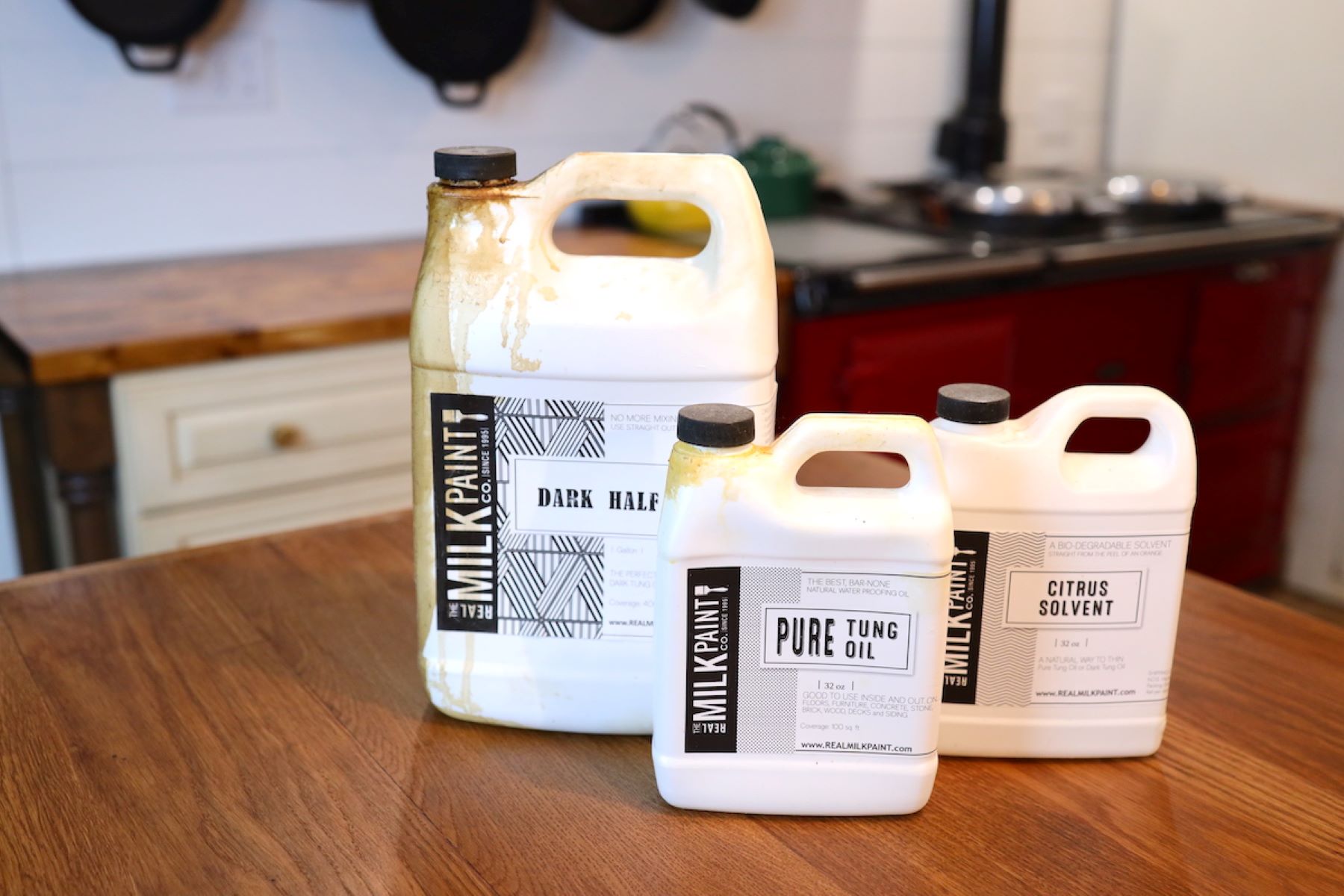

Articles
What Oil To Use On Butcher Block Countertops
Modified: January 6, 2024
Discover the best oil to use on your butcher block countertops in this informative article. Transform your kitchen with proper care and maintenance for long-lasting beauty and durability.
(Many of the links in this article redirect to a specific reviewed product. Your purchase of these products through affiliate links helps to generate commission for Storables.com, at no extra cost. Learn more)
Introduction
Butcher block countertops have gained popularity in recent years for their timeless beauty and durability. They add warmth and character to any kitchen or workspace, making them a popular choice among homeowners and chefs alike. However, to ensure their longevity and maintain their appearance, it is crucial to properly care for butcher block countertops. One vital aspect of their maintenance is the regular application of oil.
Using oil on butcher block countertops not only enhances their natural beauty but also helps to protect the wood from moisture and stains. The oil forms a protective barrier that prevents water and other liquids from seeping into the wood, which can cause warping, cracking, or even mold growth. Additionally, the oil nourishes the wood, keeping it hydrated and preventing it from drying out and becoming brittle over time.
In this article, we will explore the different types of butcher block countertops and the importance of using oil to maintain their quality. We will also discuss the best types of oil to use and provide step-by-step instructions on how to apply oil to your countertops. Lastly, we will cover some tips for keeping your butcher block clean and how to address common concerns when it comes to caring for these beautiful surfaces.
Key Takeaways:
- Regular oiling with the right type of oil is crucial for protecting butcher block countertops from moisture, enhancing their natural beauty, and preventing stains and bacterial growth.
- Choosing the best types of oil, such as mineral oil or walnut oil, and following proper application techniques are essential for maintaining the longevity and functionality of butcher block countertops.
Common Types of Butcher Block Countertops
When it comes to butcher block countertops, there are several popular wood options to choose from. Each type has its own unique characteristics, grain patterns, and color variations, allowing you to select a material that suits your personal style and kitchen aesthetic. Here are some of the most common types of butcher block countertops:
- Maple: Maple is one of the most popular choices for butcher block countertops due to its hardness and durability. It has a light, creamy color with minimal grain patterns, which makes it versatile and easy to blend with various kitchen designs. Maple is also known for its excellent resistance to scratches and dents, making it an ideal choice for heavy usage areas.
- Walnut: Walnut countertops are prized for their rich, dark brown color and beautiful grain patterns. The deep, warm tones of walnut add a touch of elegance and sophistication to any kitchen. While walnut is slightly softer than maple, it is still a durable option for butcher block countertops.
- Cherry: Cherry wood is known for its stunning red and brown hues that darken over time, offering a warm and inviting look. It has a fine, smooth grain that adds a touch of sophistication to any kitchen. Cherry wood is a softer option and may be more prone to developing scratches and dents, but it can be well-maintained with proper care.
- Oak: Oak is a classic choice for butcher block countertops, known for its strength and durability. It has a prominent grain pattern with light to medium brown color variations. Oak countertops provide a timeless and rustic appeal to any kitchen design.
- Bamboo: Bamboo is an eco-friendly alternative to traditional wood options. It has a light color with a distinctive grain pattern that adds a modern touch to any kitchen. In addition to being sustainable, bamboo is also highly resistant to moisture, making it suitable for kitchens with high humidity levels.
When selecting the type of wood for your butcher block countertop, consider factors such as the level of durability required, the desired aesthetic, and your personal preferences. Each type of wood offers its own unique charm and can enhance the overall look and feel of your kitchen.
The Importance of Using Oil on Butcher Block Countertops
Using oil on butcher block countertops is essential for maintaining their beauty and functionality. The oil acts as a protective barrier, keeping the wood nourished, hydrated, and free from moisture damage. Here are some key reasons why oiling your butcher block countertops is crucial:
- Moisture Protection: Wood is susceptible to moisture damage, especially in kitchen environments where spills and humidity are common. When wood absorbs moisture, it can warp, crack, or even develop mold. Applying oil creates a barrier that helps repel water, preventing it from seeping into the wood and causing damage.
- Enhanced Durability: Butcher block countertops serve as a work surface that is exposed to chopping, cutting, and other kitchen activities. Oiling the wood helps protect it from nicks, scratches, and general wear and tear. The oil fills in the wood pores, reducing the likelihood of deep scratches or gouges on the surface.
- Preserving Natural Beauty: Oil brings out the natural color and grain patterns of the wood, enhancing its visual appeal. Over time, wood can become dull or dry due to exposure to light, heat, and regular use. Applying oil restores the natural luster of the wood, making it look vibrant and inviting.
- Preventing Stains and Spills: Butcher block countertops are prone to stains caused by food, liquids, and other substances. The oil creates a protective layer on the wood surface, making it easier to clean and preventing stains from penetrating deep into the wood. It also helps repel oils and liquids, keeping them from soaking in and causing permanent damage.
- Preventing Odor and Bacterial Growth: Wood is a porous material that can absorb odors and harbor bacteria if not properly maintained. Oiling the wood inhibits the growth of bacteria and prevents unpleasant odors from lingering on the surface. It creates a hygienic environment for food preparation and ensures that your countertops remain fresh and clean.
Regular oiling is important to maintain and prolong the life of your butcher block countertops. Most experts suggest oiling them every few months, but the frequency may vary depending on factors such as the type of wood, level of use, and environmental conditions. It is always good to follow the manufacturer”s recommendations for proper care and maintenance.
Best Types of Oil for Butcher Block Countertops
Choosing the right type of oil is crucial for maintaining the beauty and durability of your butcher block countertops. Not all oils are suitable for this purpose, as some can turn rancid or leave a residue on the surface. Here are some of the best types of oil that are recommended for treating and protecting butcher block countertops:
- Mineral Oil: Mineral oil is one of the most popular choices for treating butcher block countertops. It is odorless, colorless, and food-safe, making it a safe option for use in the kitchen. Mineral oil is lightweight and easily absorbed by the wood, helping to moisturize and protect it from drying out. It also does not turn rancid over time, making it a low-maintenance choice.
- Walnut Oil: Walnut oil is another excellent option for treating butcher block countertops. It is a natural oil that enhances the natural warmth and richness of the wood. Walnut oil is food-safe and has a mild, nutty aroma. It offers good protection against water and moisture, keeping the wood nourished and hydrated.
- Boiled Linseed Oil: Boiled linseed oil is a traditional choice that has been used for centuries to protect and beautify wood surfaces. It is made by heating raw linseed oil, which accelerates the drying process. Boiled linseed oil provides a rich, amber color to the wood, adding depth and character. It is not recommended for cutting surfaces but works well for display or decorative purposes.
- Beeswax and Mineral Oil Blend: A combination of beeswax and mineral oil creates a protective and nourishing treatment for butcher block countertops. Beeswax adds a natural waxiness to the surface, providing additional water resistance and a smooth finish. The mineral oil penetrates the wood pores, moisturizing and protecting it from within.
- Food-Grade Butcher Block Conditioning Oil: There are also specially formulated butcher block conditioning oils available on the market. These oils are designed specifically for use on wood surfaces in food preparation areas. They are usually a blend of food-safe oils, including mineral oil, with added antioxidants and antimicrobial properties.
When choosing an oil for your butcher block countertops, consider factors such as food safety, ease of application, and the desired finish. It is essential to follow the manufacturer’s instructions for proper application and reapplication to ensure the best results.
Note: Avoid using vegetable oils, such as olive oil or coconut oil, as they can turn rancid and leave a sticky residue on the surface of the countertops.
When choosing an oil for butcher block countertops, look for food-safe options such as mineral oil or a specially formulated butcher block oil. Avoid using vegetable or olive oil, as they can turn rancid over time. Apply the oil in thin, even coats and reapply as needed to keep the wood protected and looking its best.
How to Apply Oil to Butcher Block Countertops
Applying oil to your butcher block countertops is a straightforward process that helps protect and maintain their appearance. Here is a step-by-step guide on how to properly oil your countertops:
- Prepare the surface: Ensure that your countertops are clean and dry. Remove any debris or crumbs from the surface. If you notice any stains or discoloration, you can lightly sand the area with fine-grit sandpaper to even out the surface.
- Choose the right oil: Select a food-safe oil that is suitable for butcher block countertops, such as mineral oil or walnut oil. Avoid using vegetable oils or oils that can turn rancid over time.
- Apply the oil: Pour a small amount of oil onto the surface of the countertop. Use a clean, lint-free cloth or a soft-bristle brush to spread the oil evenly over the entire surface, including the edges and corners. Make sure to apply the oil in the direction of the wood grain for the best results.
- Allow the oil to penetrate: Let the oil sit on the surface for about 15-20 minutes to allow it to penetrate the wood. This will help nourish and moisturize the wood fibers and create a protective barrier.
- Remove excess oil: After the oil has had time to penetrate the wood, use a clean cloth to wipe off any excess oil. Make sure to remove any pooling or drips to prevent an uneven finish.
- Repeat the process: Depending on the type of oil and the condition of your countertops, you may need to repeat the oiling process. Some oils may require multiple coats for better protection and a deeper luster. Refer to the manufacturer’s instructions for the recommended number of coats and drying times.
- Allow the oil to cure: Give the oil enough time to cure and dry completely before using the countertops. This typically takes about 24-48 hours, but drying times may vary depending on the type of oil and environmental conditions.
- Maintain regular oiling: To keep your butcher block countertops in optimal condition, it is recommended to reapply oil every few months or as needed. Regular oiling will help maintain their beauty and protect them from moisture and other potential damage.
Remember to always refer to the specific instructions provided by the manufacturer of the oil you choose to ensure proper application and care. By following these steps, you can ensure that your butcher block countertops remain beautiful and well-protected for years to come.
Read more: How To Do Butcher Block Countertops
Maintaining and Cleaning Butcher Block Countertops
Proper maintenance and cleaning of butcher block countertops are essential to ensure their longevity and keep them looking their best. Here are some tips on how to maintain and clean your butcher block countertops:
- Wipe up spills promptly: Accidents happen in the kitchen, and spills are inevitable. It is important to clean up any spills immediately to prevent them from seeping into the wood and causing stains or damage. Use a cloth or paper towel to blot the spill and dry the area thoroughly.
- Avoid excessive moisture: While wood countertops are sealed with oil, prolonged exposure to excessive moisture can still damage the wood. Avoid leaving wet items or standing water on the surface for extended periods. Use coasters or trivets under hot or moist items to protect the wood from heat and moisture damage.
- Use gentle cleaning solutions: When it comes to cleaning, opt for mild, non-abrasive cleaning solutions. Mix a few drops of mild dish soap or a vinegar-water solution with warm water. Use a soft cloth or sponge to gently clean the surface, then wipe it dry to prevent moisture from lingering.
- Avoid harsh chemicals and abrasive materials: Harsh chemicals and abrasive cleaners can strip away the protective oil and damage the wood surface. Avoid using bleach, ammonia, or abrasive scrubbing pads or brushes. Stick to gentle cleaning methods to preserve the integrity of the wood.
- Regularly sanitize the surface: To keep your butcher block countertops free from bacteria and germs, it is essential to regularly sanitize them. You can use a mixture of equal parts water and white vinegar to create a natural disinfectant. Spray the solution onto the surface, let it sit for a few minutes, then wipe it clean. Afterwards, dry the countertop thoroughly.
- Apply fresh coat of oil: Over time, the protective oil on your countertops may wear off due to regular use and cleaning. To maintain their appearance and protection, periodically apply a fresh coat of oil as per the instructions provided by the manufacturer. This will help replenish the moisture and keep the wood nourished.
- Reseal if necessary: If you notice that water is no longer beading on the surface of your countertops or that they are absorbing liquids instead of repelling them, it may be time to reseal the wood. Sand the surface lightly, clean it thoroughly, then apply a new coat of oil to restore the protective barrier.
By following these maintenance and cleaning tips, you can keep your butcher block countertops in excellent condition and ensure they remain a beautiful and functional centerpiece in your kitchen for years to come.
Frequently Asked Questions
Here are some commonly asked questions about caring for butcher block countertops:
- 1. How often should I oil my butcher block countertops?
- 2. Can I cut directly on butcher block countertops?
- 3. How should I repair scratches or dents on my butcher block countertops?
- 4. Can I place hot pans directly on butcher block countertops?
- 5. What should I do if my butcher block countertops develop mold or mildew?
- 6. Can I refinish my old butcher block countertops?
The frequency of oiling your countertops depends on several factors, including the type of wood, level of use, and environmental conditions. As a general guideline, it is recommended to oil butcher block countertops every few months or as needed. Monitor the surface regularly, and if it starts to appear dull or dry, it may be time to apply a fresh coat of oil.
While butcher block countertops are durable and able to withstand cutting, it is generally recommended to use a cutting board to protect the surface. Cutting directly on the wood can leave marks or scratches, and it may also dull your knives more quickly. Using a cutting board will help to prolong the life and appearance of your countertops.
Minor scratches or dents can often be repaired by lightly sanding the affected area with fine-grit sandpaper. Sand in the direction of the wood grain until the imperfections are smoothed out. Afterward, clean the surface and reapply oil to restore the finish. For deeper scratches or more extensive damage, it may be necessary to seek professional assistance.
Butcher block countertops are generally heat-resistant, but it is still recommended to use trivets or hot pads to protect the wood surface from direct contact with hot cookware. Extreme temperature changes can cause the wood to expand or contract, potentially leading to cracks or warping over time.
If you notice mold or mildew on your butcher block countertops, it is important to address the issue promptly. Wipe the affected area with a mixture of equal parts water and white vinegar to kill the mold or mildew. Then, thoroughly dry the surface and apply a fresh coat of oil to prevent future growth. If the problem persists or the damage is extensive, consult a professional for assistance.
Yes, it is possible to refinish old butcher block countertops to restore their appearance. Start by sanding the surface to remove any existing finish or blemishes. Clean the countertop thoroughly and let it dry completely. Apply a fresh coat of oil or a suitable refinishing product according to the manufacturer’s instructions. Refinishing can help bring new life to your old countertops and make them look like new.
Remember that proper care and maintenance, including regular oiling and gentle cleaning, are key to preserving the beauty and functionality of your butcher block countertops. If you have any specific concerns or questions, it is always best to consult the manufacturer or seek professional advice.
Conclusion
Butcher block countertops are a stunning addition to any kitchen or workspace. Their natural beauty and durability make them a popular choice for homeowners and chefs alike. To ensure their longevity and maintain their appearance, it is crucial to properly care for and maintain these surfaces. One essential aspect of their maintenance is the regular application of oil.
Using the right type of oil on butcher block countertops provides several benefits. It protects the wood from moisture damage, enhances its natural beauty, prevents stains and spills from penetrating the surface, and inhibits the growth of bacteria and odors. Regular oiling helps keep the wood nourished and hydrated, extending the life of your countertops.
It is important to choose the best types of oil for butcher block countertops, such as mineral oil, walnut oil, or a blend of beeswax and mineral oil. These oils provide excellent protection and nourishment for the wood. Avoid using vegetable oils or oils that can turn rancid and leave a sticky residue on the surface.
When applying oil to your countertops, ensure that the surface is clean and dry. Follow the manufacturer’s instructions for proper application and drying time. Regular maintenance and cleaning are also vital for keeping your butcher block countertops in top condition. Wipe up spills promptly, use gentle cleaning solutions, and regularly sanitize the surface to prevent bacteria growth.
By following these guidelines and properly caring for your butcher block countertops, you can enjoy their beauty and functionality for many years to come. Remember to regularly oil your countertops, maintain their cleanliness, and address any issues promptly to preserve their natural charm and protect your investment.
In conclusion, proper oiling and maintenance are essential for the longevity and beauty of butcher block countertops. With proper care, these surfaces will continue to showcase their natural elegance and provide a durable and versatile work area for all your culinary adventures.
Frequently Asked Questions about What Oil To Use On Butcher Block Countertops
Was this page helpful?
At Storables.com, we guarantee accurate and reliable information. Our content, validated by Expert Board Contributors, is crafted following stringent Editorial Policies. We're committed to providing you with well-researched, expert-backed insights for all your informational needs.
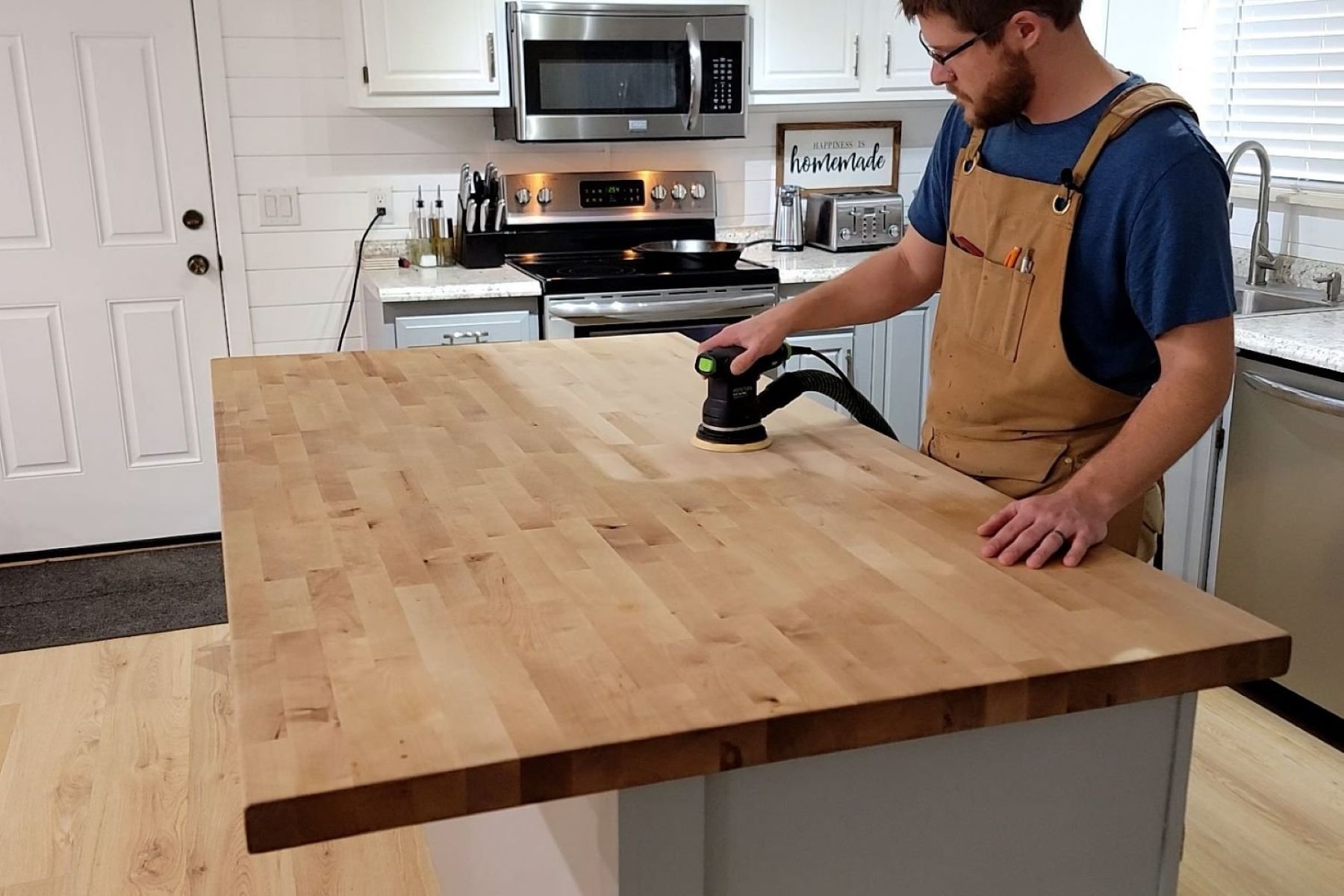

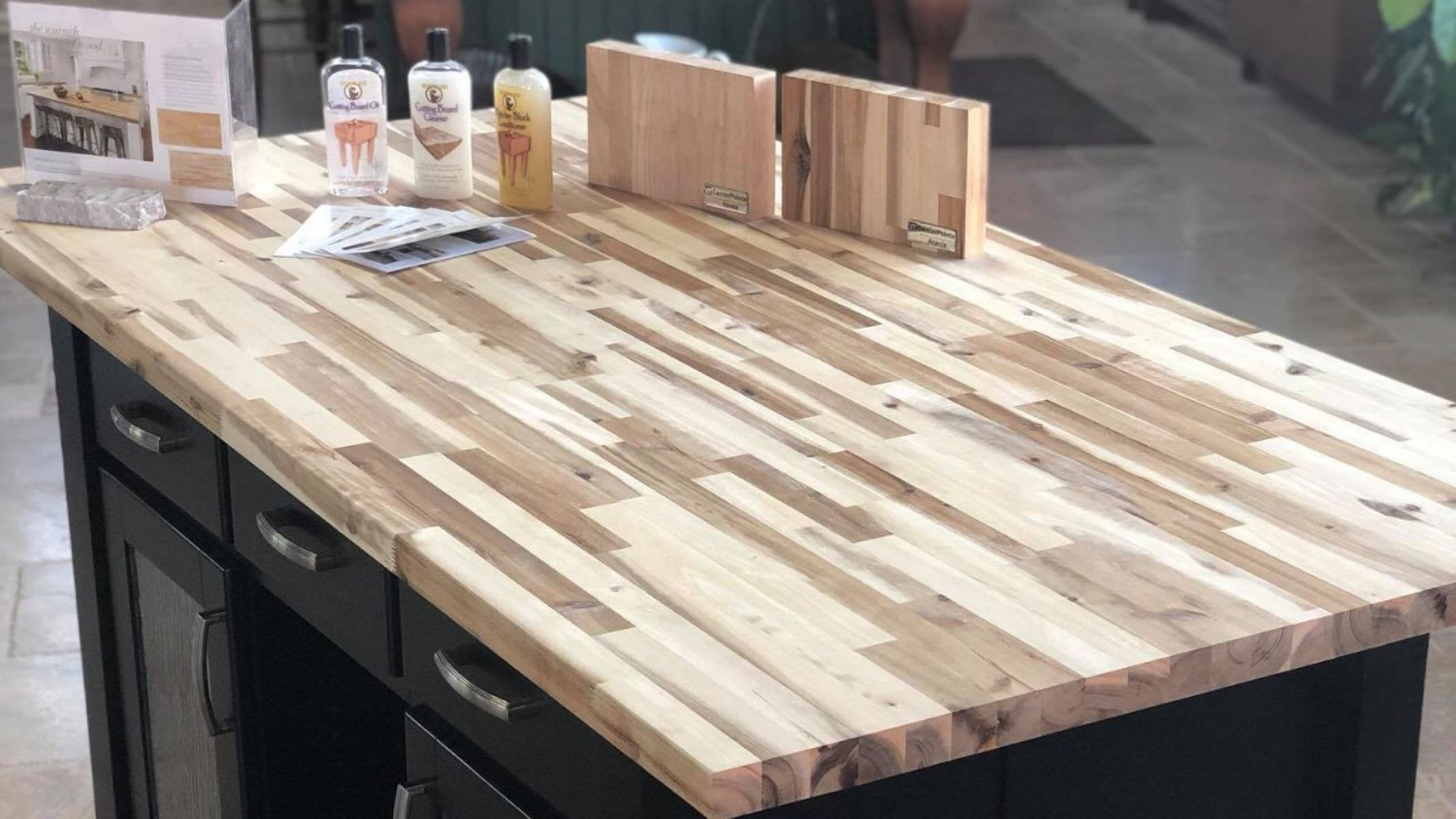

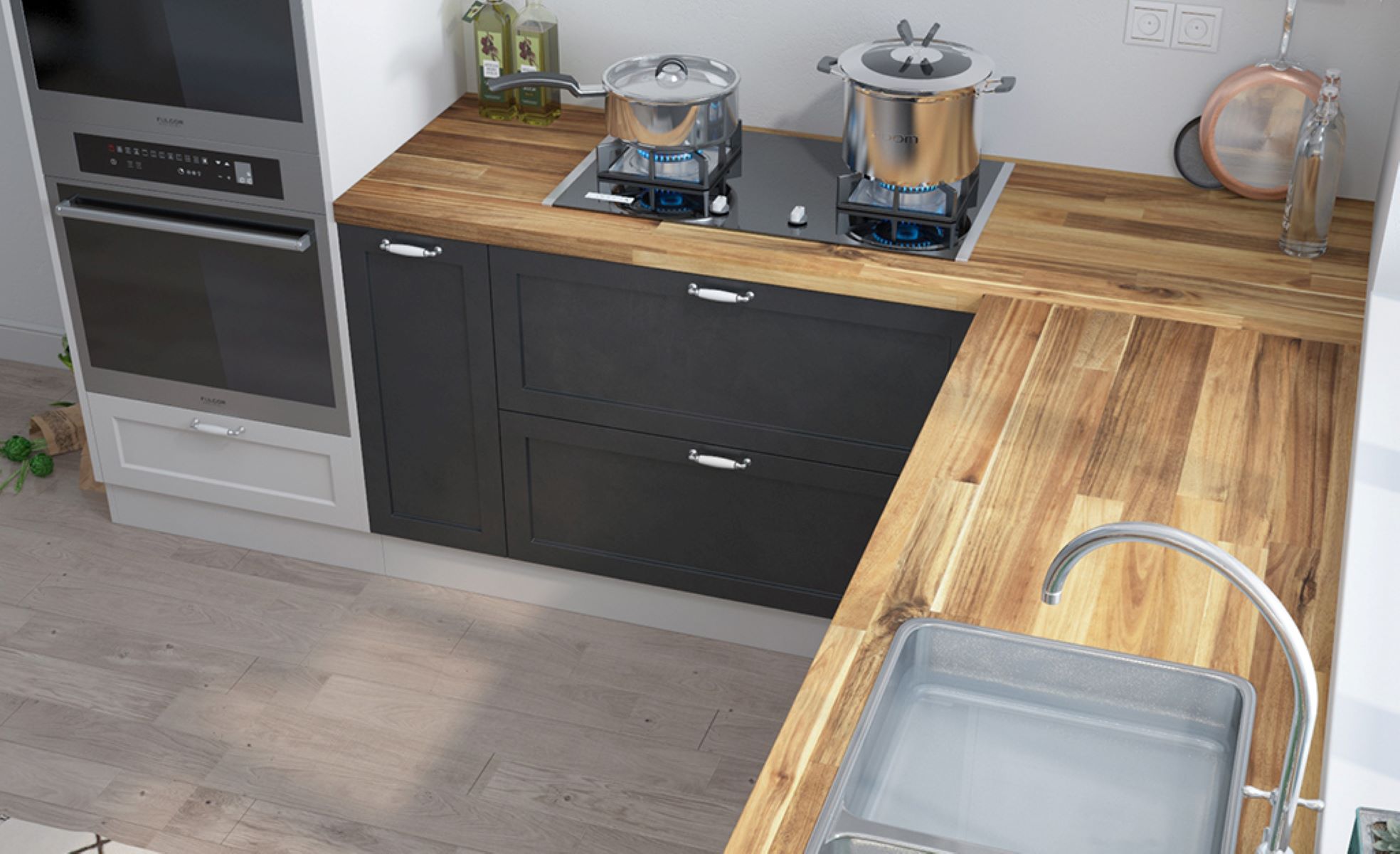

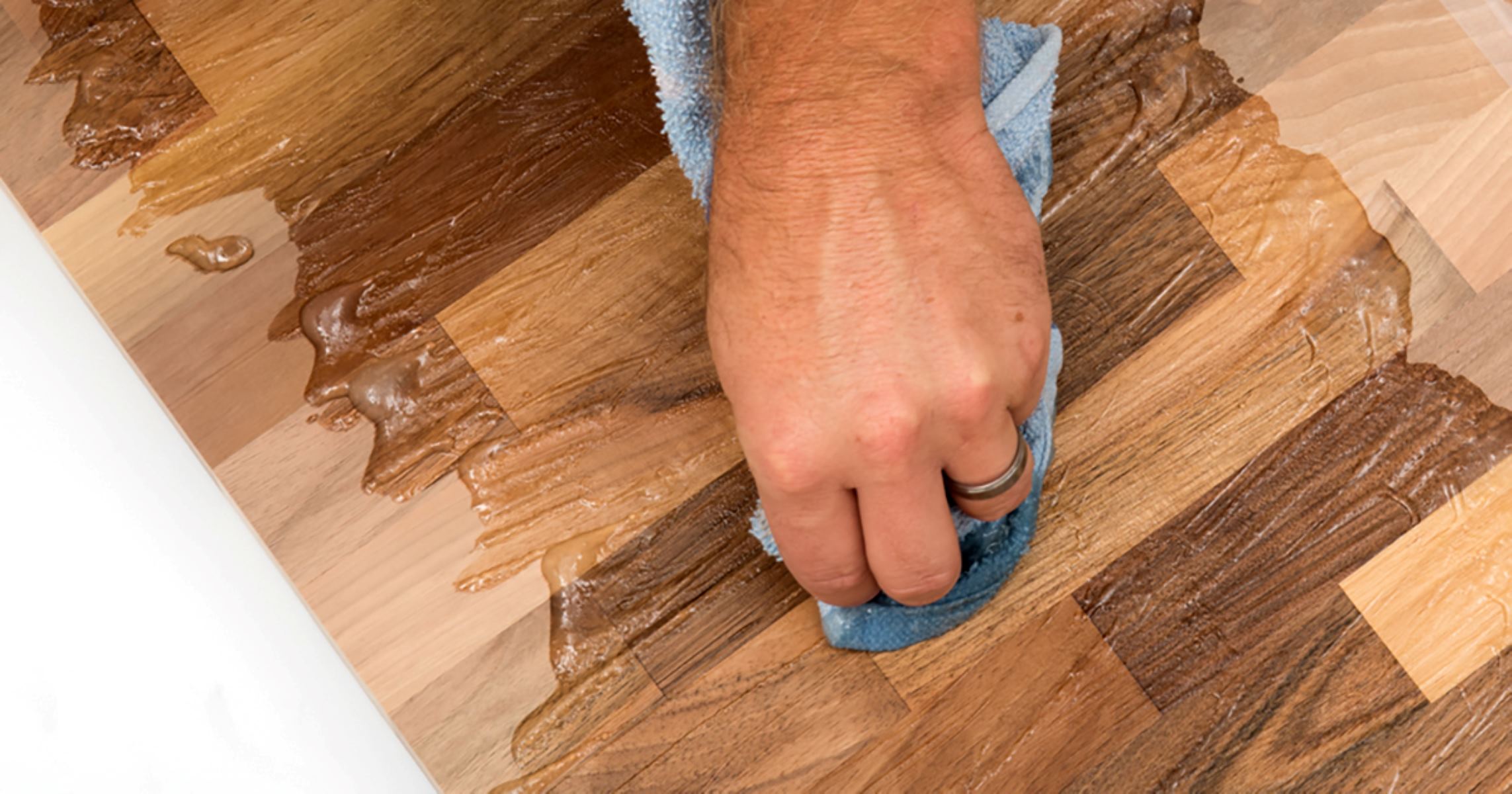
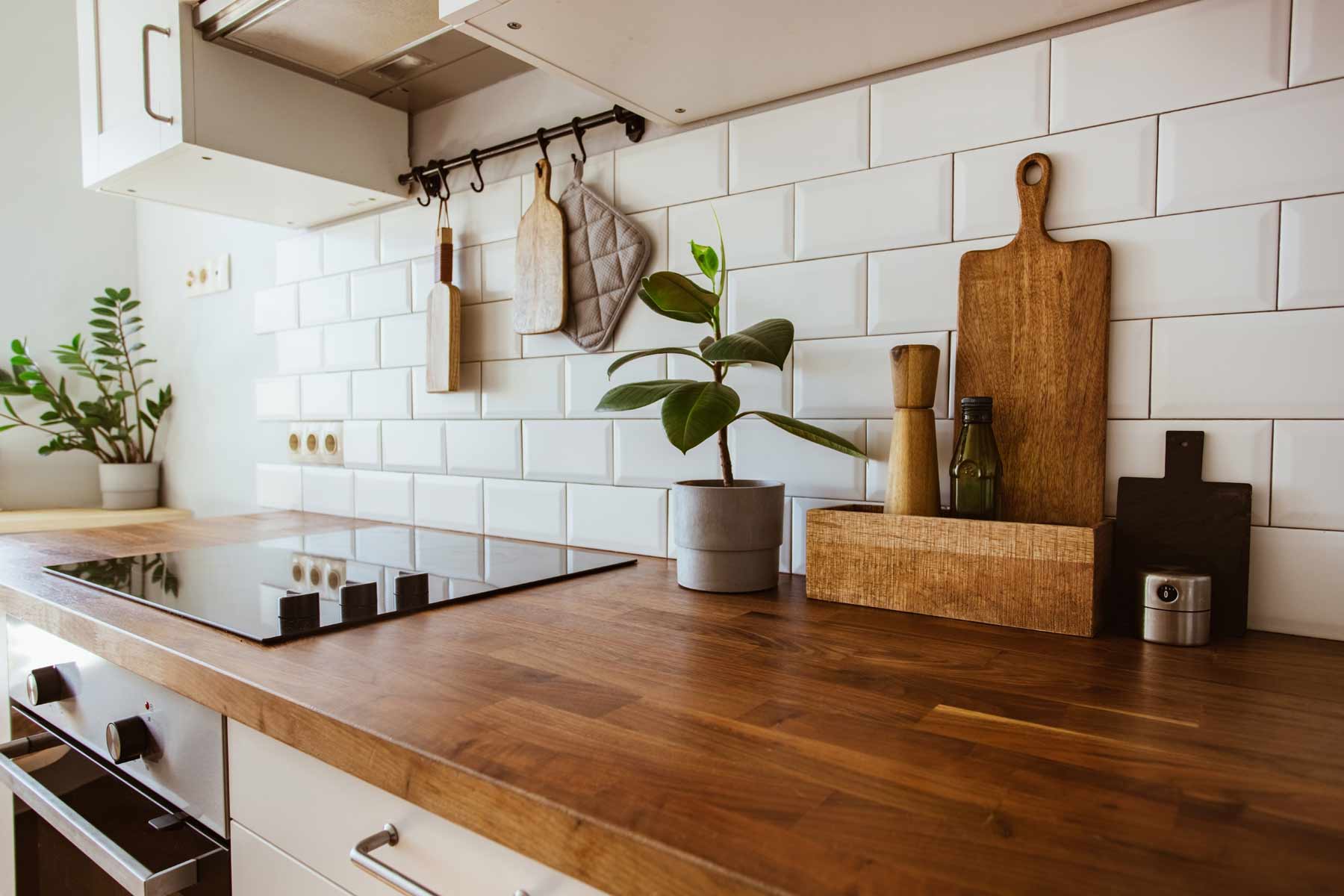
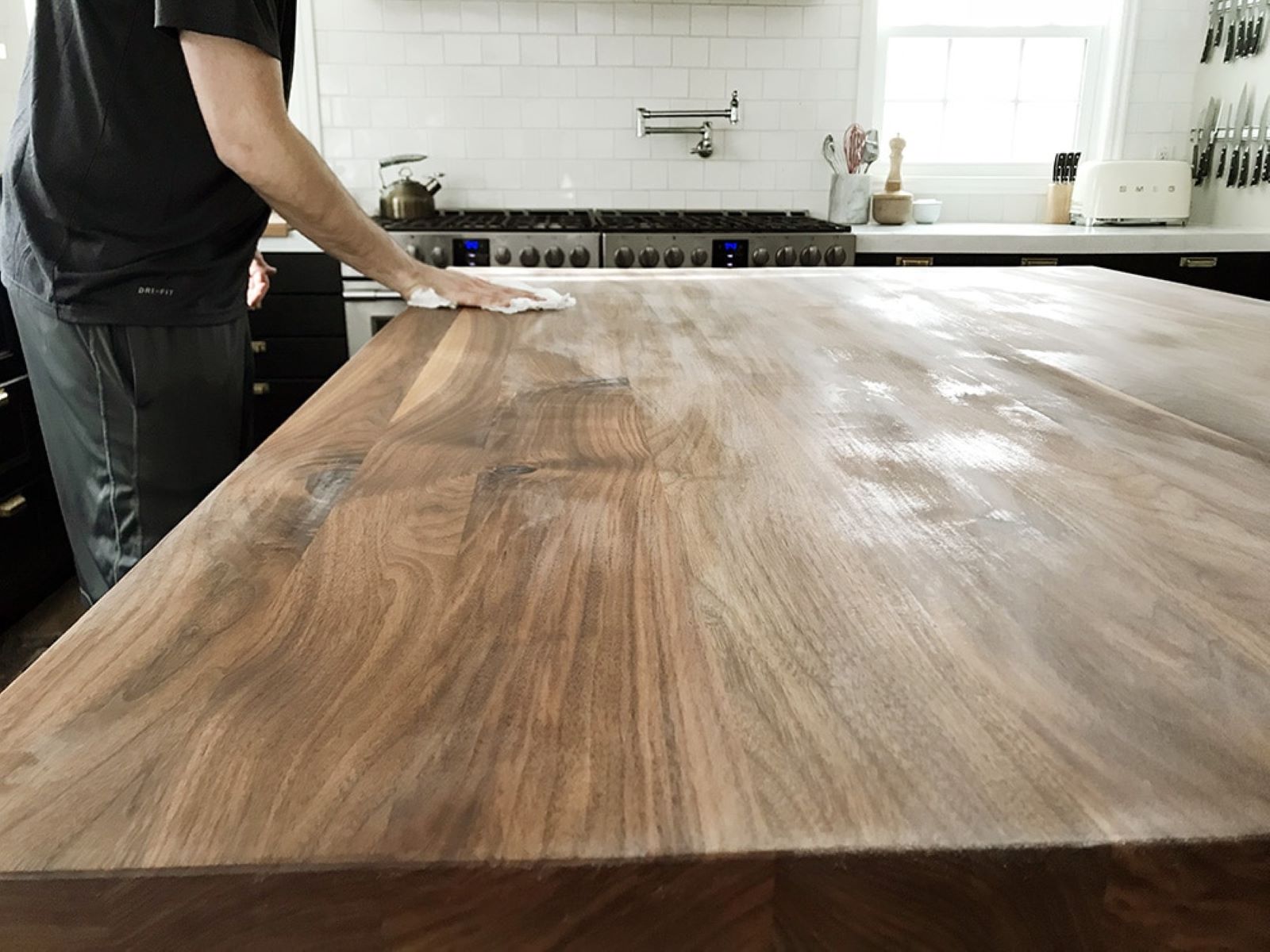
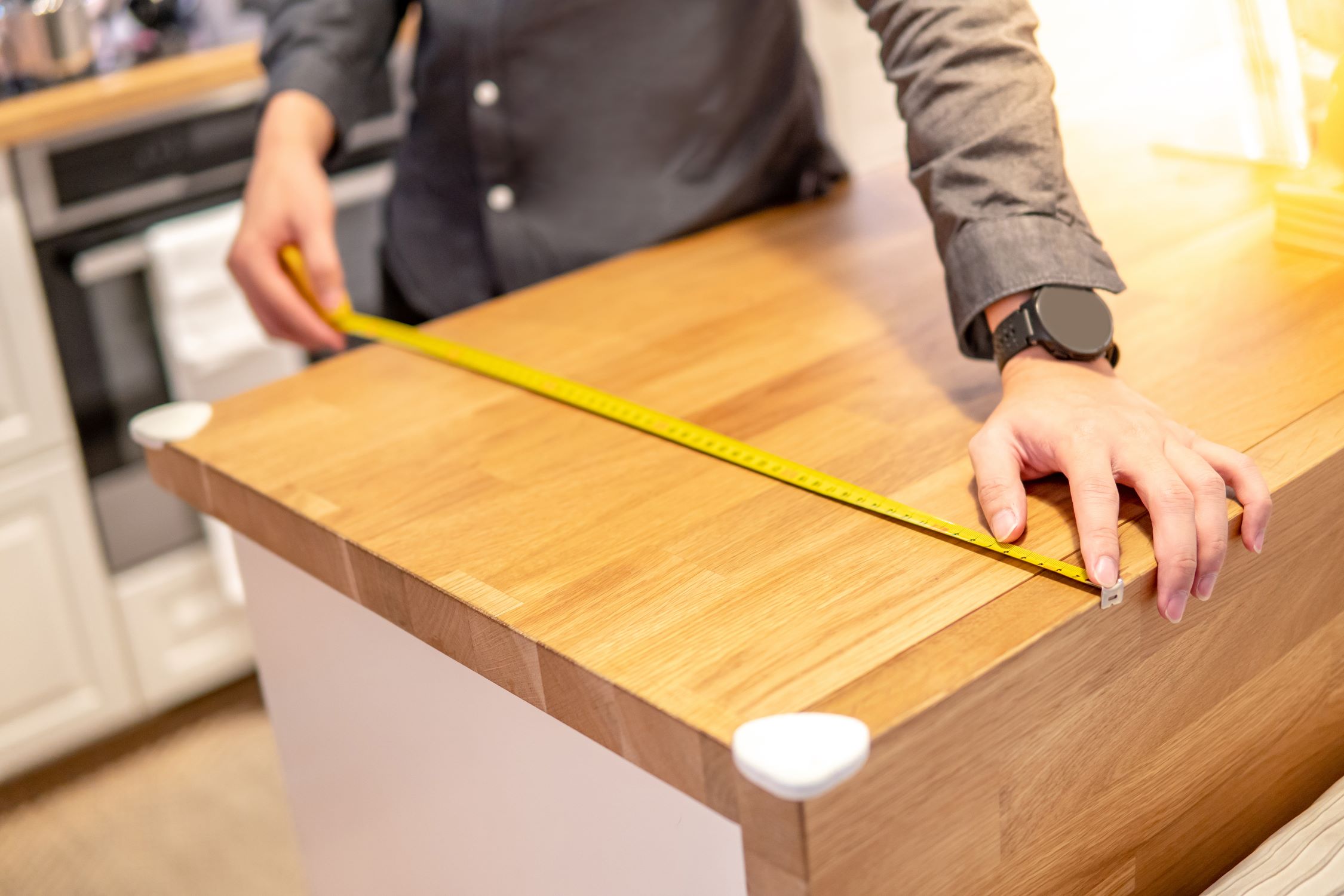

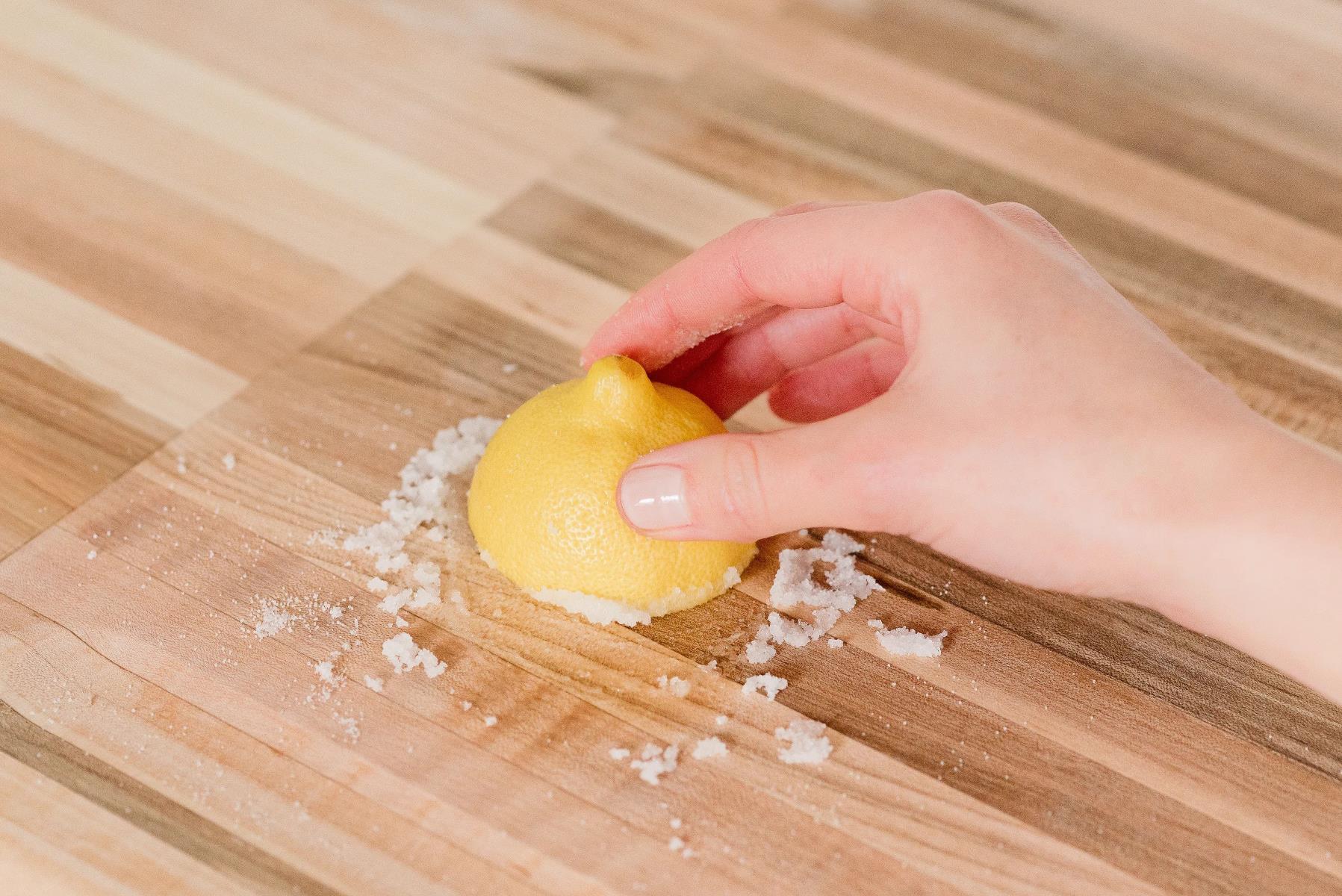



0 thoughts on “What Oil To Use On Butcher Block Countertops”